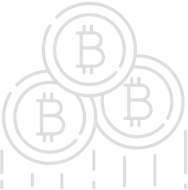Technology is reshaping the world’s economies – and not always for the better. Newton provides blockchain infrastructure that focuses on a freer, fairer, and more open economy by providing the means for governance, collaboration, and motivation. Our technology stack, protocols and applications enable a community economy that fights for the public good, supported by a non-profit foundation with the vision that everyone should benefit from economic growth. This new kind of economy cuts out middlemen and puts more money in the pockets of both consumers and retailers. We’ve designed a complete economic model for tokens and business, made up of both human and machine nodes. Each node will receive NEW tokens based on their contribution to the economy, ensuring that all participants can benefit from Newton. Our first commercial application, NewMall, will launch at the end of 2018.
STO/ICO Status
Claim this listing and publish updates.
Basics
| Platform | Newton |
|---|---|
| Type | N/A |
| Accepting | BTC |
| Circulating Supply | 1.5% |
| KYC | N/A |
| Restricted Areas | N/A |
| Homepage | Website URL |
| White Paper | View/Download |
Bonus
About
Science and technology play an important role in the evolution of human civilization. Every major scientific discovery and its application have greatly improved human life. The invention and large- scale application of the steam engine marked the beginning of the first industrial revolution and ushered in an era in which machines replaced manual labor. With the invention and application of electric power and internal combustion engines, the second industrial technology revolution began and the continuing electrical era started. As computers and the Internet were invented, the third technological revolution began, and human beings entered the information era and created a “Bit World” that never existed before. Now that the “Bit World” has become a new land for mankind with profound influence on human civilization.
Looking back at the history of information technology, there is a less-known development path with profound influence: The Free Software Movement [1] initiated by Richard M. Stallman in 1983. In the early days of the computer industry, software was sent to users in the form of source code so that users can make full use of their hardware in a reasonable way. With the application of copyright law in the software field, software was authorized to users in binary form, representing the start of the era of proprietary software. In this context, Richard M. Stallman launched the GNU project in 1983 to develop a free and complete operating system, ushering in the free software movement [2]. By the beginning of the 21st century, great progress has been made in the free software campaign, including abundant software technologies, complete free software licenses, global community and so on. The emergence of free and open source hardware such as Arduino and Raspberry Pi marks the development of free and open source intellectual property rights movement from software to hardware domain.
In the second half of 2008, Satoshi Nakamoto published a paper via a mailing list: "Bitcoin: A Peer- to-Peer Electronic Cash System" [3], and released free and open source Bitcoin software in early 2009, which shows that the development of free and open source philosophy has spread from software and hardware into economic field.
